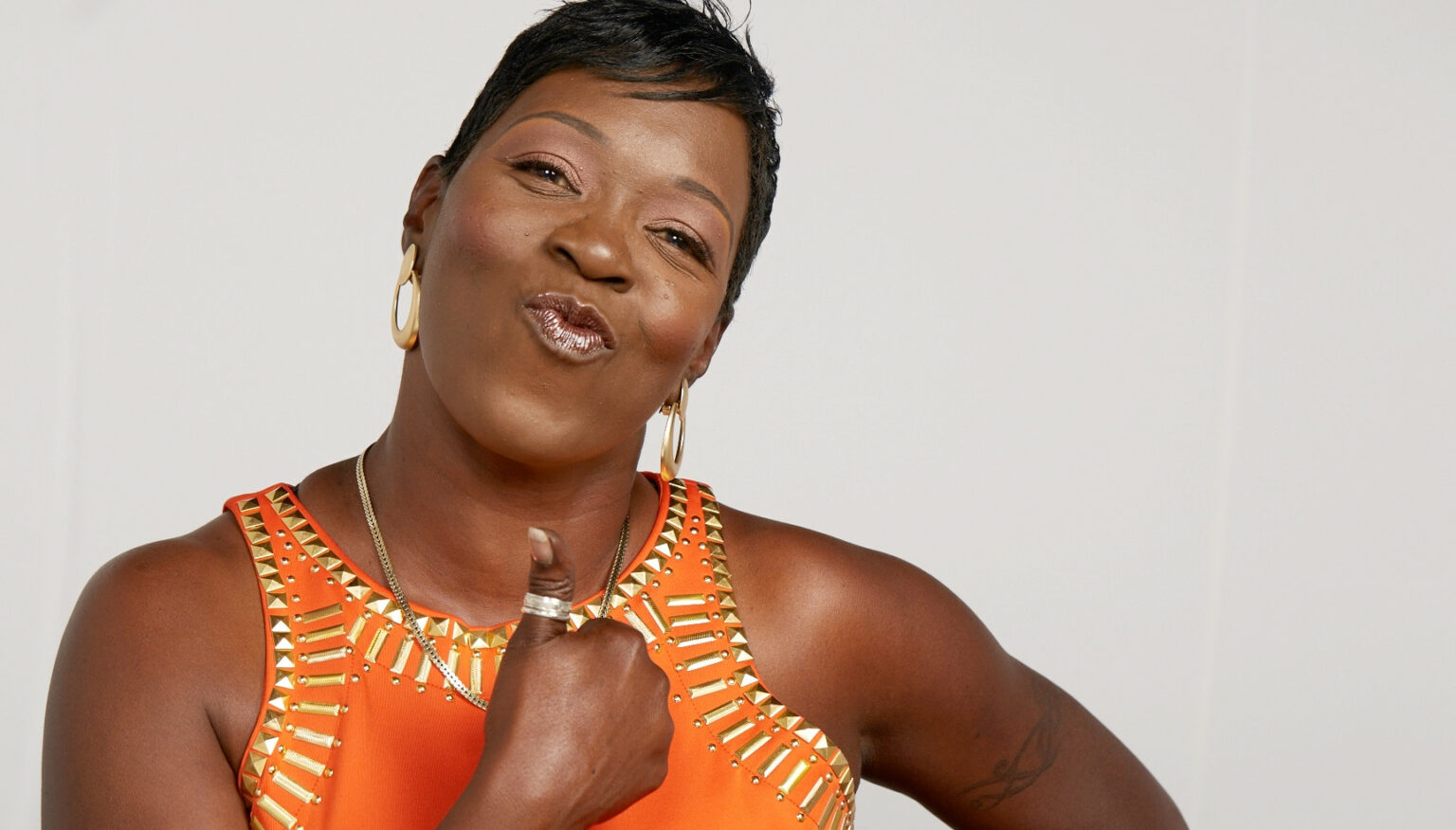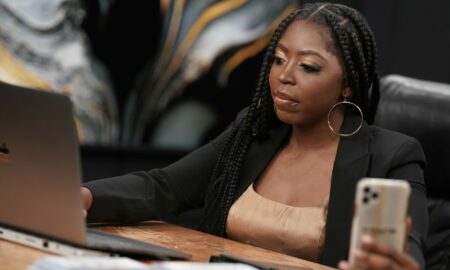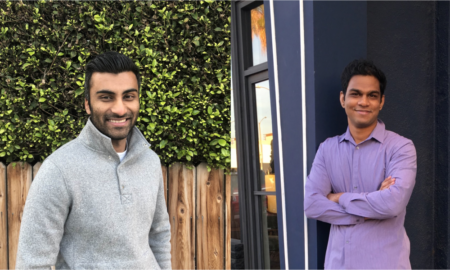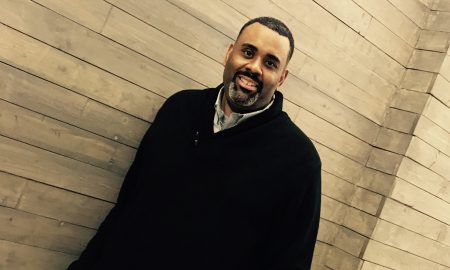 We are thrilled to be connecting with Rhonda C Hight again. Rhonda is a Human Resources Consultant/Trainer, Registered Corporate Coach and is also a content partner. Content partners help Voyage in so many ways from spreading the word about the work that we do, sponsoring our mission and collaborating with us on content like this. Check out our conversation with Rhonda below.
We are thrilled to be connecting with Rhonda C Hight again. Rhonda is a Human Resources Consultant/Trainer, Registered Corporate Coach and is also a content partner. Content partners help Voyage in so many ways from spreading the word about the work that we do, sponsoring our mission and collaborating with us on content like this. Check out our conversation with Rhonda below.
Rhonda, it’s been too long since we last connected. Thanks so much for taking the time to share your thoughts with our community again. Some readers might have missed our prior conversations, so maybe you can kick things off for us with a quick intro?
Sure, I am Rhonda Hight, Owner of Let’s Talk, LLC, a boutique human resources consulting and training firm based in Atlanta, GA. As a consultant and corporate coach, I help individuals and teams reach new heights! Let’s Talk, LLC was founded in 1993, and we have been blessed to work with various organizations around the world. We specialize in providing training and consulting services in the areas the diversity, equity and inclusion, interpersonal communication skills, leadership development and change management. Our brand has become known for providing a “personal touch” and customizing the learning experience for our clients by incorporating their values and policies, so that the content aligns with their mission and business objectives. We also believe that learning can be fun, so we design experiential training programs that are engaging and memorable.
As an HR Consultant and trainer, one of your areas of expertise is diversity, equity and inclusion. How did the murder of George Floyd impact the work that you do in this area?
With the murder of George Floyd, organizations became more aware and in many cases more committed to addressing racism and the systemic effects of it in the workplace. Companies understood that not making a statement condemning racism, or taking steps to provide a platform for their employees to express their feelings and thoughts about the racial reckoning that was occurring could impact their brand and bottom-line. I began to receive training requests from past and current clients, new clients, and colleagues looking to collaborate on diversity, equity and inclusion training. Many organizations wanted to provide training (some for the first time) that would give their leaders and employees information and tools they could use to contribute to and sustain inclusive workplaces.
Covid-19 has changed the landscape for everyone. What changes have you seen in your business, and how have you responded to what some refer to as the new normal?
Prior to the pandemic, over 90% of my work required travel. My last flight was March 10, 2020. The biggest change to my business has been the way in which I deliver training. All of my work has been done using virtual platforms (e.g., Zoom, WebEx, etc.). The ironic thing is that I began learning how to deliver virtual instructor-led training almost three years ago. I did so in anticipation of semi-retirement. My plan was that once I was ready to slow down my workload and limit my travel, I would continue to generate revenue utilizing technology. Little did I know that this preparation would allow me to quickly pivot and hit the ground running when the pandemic was declared and everything shut down. Since the murder of George Floyd, almost all of my work has been in the Diversity, Equity, Inclusion (DEI) area. Prior to Covid, the DEI work only accounted for about 60% of my business versus 95% since March, 2020.
You have traveled the world, and trained thousands of individuals domestically and internationally; what is one thing that has been consistent with the professionals and organizations you’ve worked with?
Actually there are three things that have been consistent. The first is that you have your good, bad, indifferent and downright ugly (in terms of character and personalities) no matter where you are in the world. The second is that smiling is a universal language. Whether I’m in Butler, Alabama or Shanghai China, I have found that a smile is a great way to begin connecting with people across differences. Even in countries where I had to use a translator app to communicate; without uttering a word, a smile communicated good intent–something everyone can relate to. Lastly, at the end of the day, everyone wants the same thing from their employment; fair wages, an environment that is respectful, and to be appreciated and valued for the work they do. Organizations that can meet these (employee) expectations are the most successful, no matter where in the world they are located.
You state that as a Registered Corporate Coach you help individuals and teams to “reach new heights”; what methodologies, tools or techniques have been most effective in helping you to do that?
Coaching involves a Socratic methodology, where you are asking questions designed to move the Coachee towards insight or acceptance, so that they will identify or clarify their [respective] goals for themselves. As you go deeper into the process, they are able to identify obstacles (internal and external) to their goals and additional resources needed to be successful in attaining them. They control the process and decide how often they would like to receive coaching, and they are responsible for initiating the meetings. This builds accountability for the process, and because they are not being “told” how to meet their goals, but are discovering how to do so themselves, they are more likely to make the behavioral changes or modifications needed to reach new heights in their careers or businesses.
In your book, “Take the Lessons and Leave the Baggage ~ Stories of a Solopreneur”, you have a chapter titled “All Money Ain’t Good Money”. Can you expound on that?
One of the benefits of being an solopreneur is that you have the freedom to say “No” to projects that don’t align with your skills, interests or values. The same applies to clients or projects. I’ll share a story to illustrate what I mean. I was referred to a new client by a colleague. The referral came with the disclaimer that “the client was a lot”; this was the first red flag that I ignored. I met with the client and the meeting went well. The project was within the scope of services that Let’s Talk provides and it did not require travel, so I entered into a contract with them. During the first meeting to discuss deliverables and schedule the timeline for the project, a few things happened. The client asked me to do more than originally discussed, and as I got under way with the project, things kept changing which resulted in additional time spent and work product produced. Our agreement stated that additional services (beyond what was contracted) would be billed at my hourly consulting rate. When it came time to pay the invoice, the client refused to pay for the additional services and accused me of lying about something that was clearly stated in our contract. The final straw came when they wanted me to accommodate a request that was borderline illegal from an employment standpoint. “All Money Ain’t Good Money.” I’ve become better at vetting clients and projects, and even pulling the plug on a project once red flags appear, or my intuition tells me that this is not good money…for me.
Another chapter in your book [titled] “Help I’ve Fallen….” talks about the importance of entrepreneurs remaining motivated and getting up after failure or disappointment. How have you been able to do that?
First of all you have to manage your expectations. One of my mantras is that “It’s not over until the check clears the bank.” When I first began Let’s Talk, I would get super excited about prospects for new business! I would immediately start planning next steps and in some cases actually doing work in preparation for what I hoped would be a new client or project. So, when the deal fell through, it would be as though I was dropped down from heaven to the cold cold earth. I would host a pity party that would last for weeks or until the next “potential opportunity” came along. Eventually I wizened up and learned to manage my expectations. Doing so, eliminated that long fall, and it also prevented me from wasting resources and doing work that I would never be paid for. However, there will be other times, for example when business is slow, you make some costly mistakes, key relationships are damaged, or perhaps you have things in your personal life that bring you down mentally. The key is to identify WHAT or even WHO can help pull you back up before you have a need for this type of assistance. In my case, it is my faith and a tribe of true friends that have supported me the entire journey. I also do things that bring me joy, like dancing, spending time with my grandson, and adult coloring books. Know what things are capable of pulling you up off the floor, honor and cherish them because as a business owner, it’s not a question of WILL you need them, but WHEN will you need them.
Thank you so much again for sharing all of this with us. Before we go, can you share with our readers how they can connect with you, learn more or show support?
Email: Rhonda@Letstalkllc.com Phone: (404) 212-0239
My website is: https://www.Letstalkllc.com, and you can follow me on the following social media platforms: Instagram: @letstalklc25 Facebook: https://www.facebook.com/LetsTalkLLC
LinkedIn: https://www.linkedin.com/in/rhonda08/
Contact Info:
- Website: https://www.Letstalkllc.com
- Facebook: https://www.facebook.com/LetsTalkLLC
- Linkedin: https://www.linkedin.com/in/rhonda08/
Image Credits
Photo by DeWayne Rogers
















